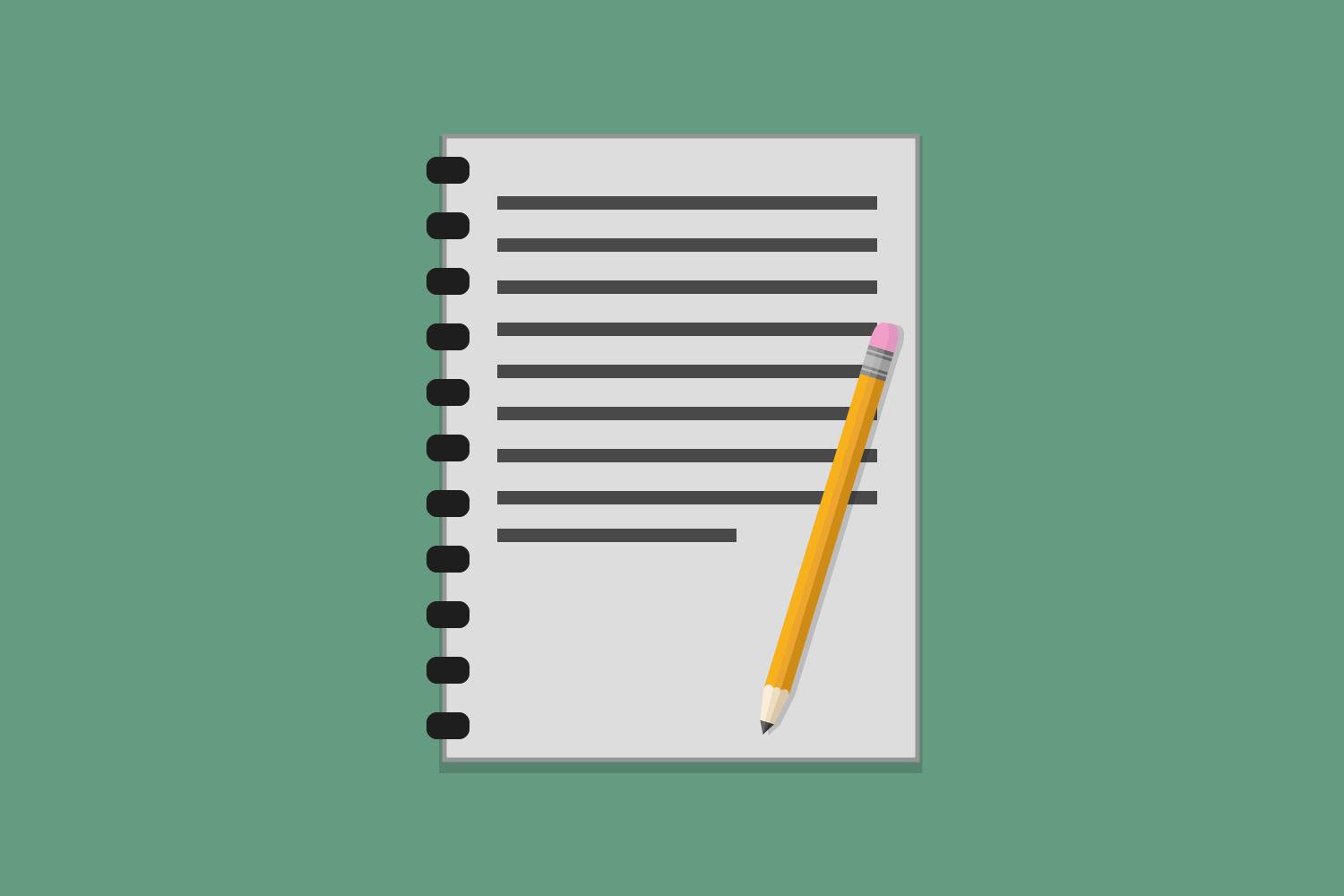After the death of her father, Erin Slaughter used writing to help process her feelings of grief, and it became a large part of her healing process.
Slaughter, a graduate student from Anna, Texas, is pursuing a master’s degree in creative writing. Her father’s death became the subject of her graduate thesis.
“Through writing and researching my thesis, I’ve been able to come to conclusions about who my dad was, my feelings about him, and what it means to lose a parent,” Slaughter said. “That ended up being healing for me, even if I didn’t go into the writing of it expecting it to be healing.”
Some of her poetry, fiction and nonfiction works have been published in Rabbit Catastrophe Review, Gravel, Drunk in a Midnight Choir, Harpoon Review, River Teeth Journal, the Bellingham Review and other literary magazines.
Slaughter said she regularly uses writing as a way to relieve stress.
“Sometimes, if I’m going through something emotionally intense, and I don’t really understand where it’s coming from or how to fix it, I’ll try to write through it and explore things that way,” she said. “It’s a little like exhaling. Then, you can look at [your feelings] up close, objectively, or simply feel proud that you took pain and created something beautiful from it.”
Slaughter teaches English 100 classes at WKU and said she notices many students who stress over the idea of writing. She said she hopes to help her students see writing as a relaxing, fun activity that allows them to be creative and express themselves.
Allison Call, a senior from Staten Island, New York, also sees writing as a form of therapy.
Call is majoring in literature and minoring in journalism. She said she has wanted to be a writer since she was 6 years old.
“Writing is therapeutic for me,” Call said. “It’s almost addictive to the people that really enjoy [it] … It’s the good kind of addiction, though. It’s helped me communicate better and understand myself and my own thoughts better.”
She is unsure about her future career path, but she said she hopes it includes literature or writing.
“I don’t think I’d survive if it didn’t,” Call said.
Writing also helped Zane Dezeeuw, a graduate student from Ridgewood, Colorado, get through hard times in his life.
He said he has written for as long as he can remember. Dezeeuw became more serious about writing in sixth grade when he realized it was a good outlet for relieving and confronting negative feelings.
“I feel like every kid goes through really rough times in their lives, and I think everybody copes with it differently,” Dezeeuw said. “… [My way] was always reading and writing.
Once Dezeeuw received his undergraduate degree, he said he wondered how writing could be therapeutic in a more systematic way.
He discovered mindfulness in writing through a reading, writing and mindfulness class. Dezeeuw also did an internship involving applying mindfulness techniques to writing, and he said he reads many mindfulness texts.
“A big part of mindfulness is coming to terms with your feelings … you can’t escape those things,” Dezeeuw said. “The more you escape those thoughts, the more they’re just going build up and come back. Once it’s out there, it becomes more tangible, so it’s easier to process it.”
When his mind is racing or he has a bad day, Dezeeuw said he still likes to sit down and write about it to understand how he is feeling. Over time, he has found it important to realize one’s thoughts are worthy of being written and conversations with oneself are important in processing thoughts and feelings.
Using writing as therapy is not just for English majors. According to the New York Times, several researchers at Duke University believe writing and editing personal stories can shape the way we see ourselves and help us identify barriers that keep us from achieving better health.
Your writing doesn’t have to be perfect, and you don’t need to share it with anyone if you don’t want to. Just write for yourself. Keep an honest, expressive documentation of yourself, and your emotional health will thank you.



